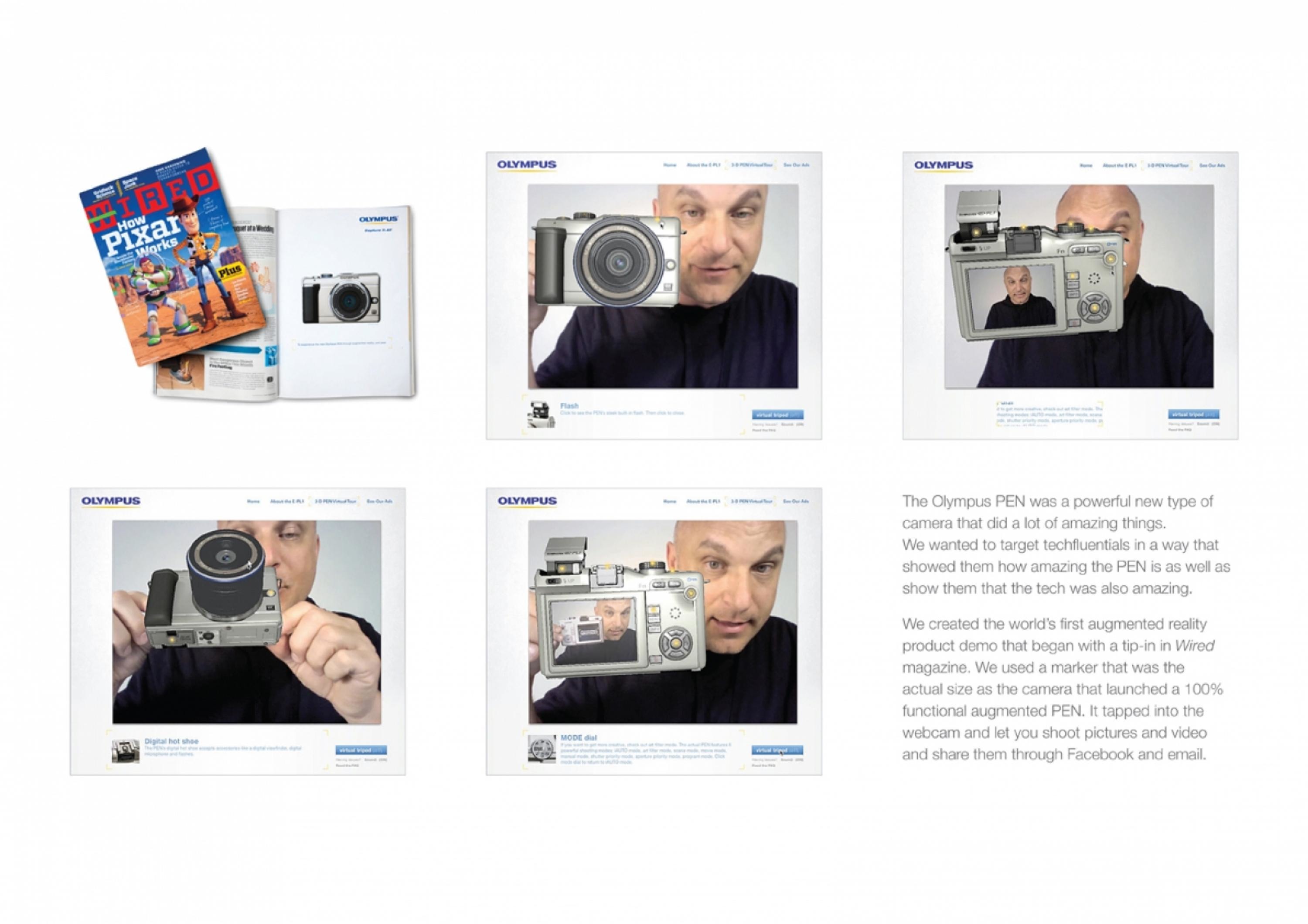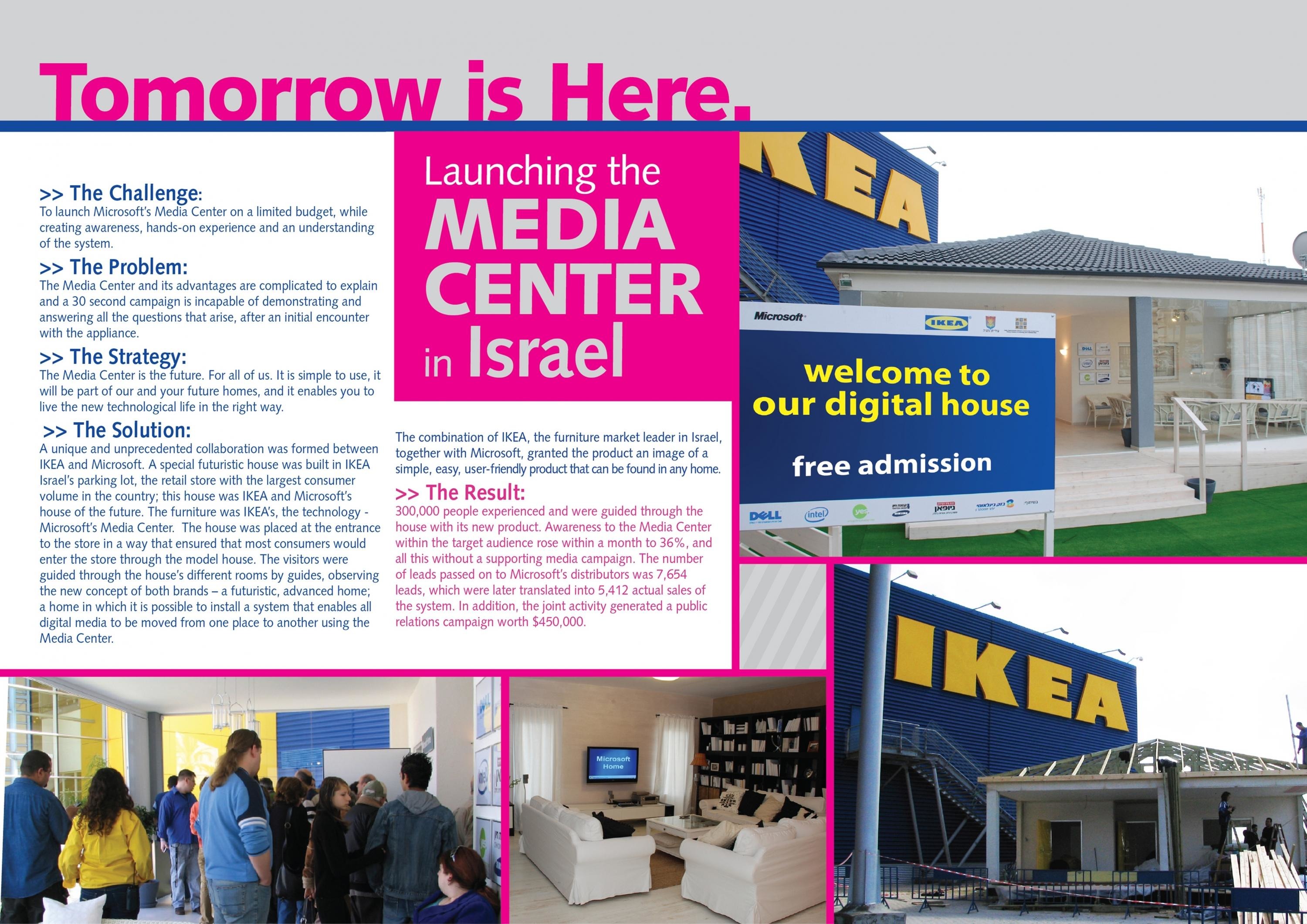Cannes Lions
Future of Fashion Incubator
LISTEN, New York / MICROSOFT / 2019
Overview
Entries
Credits
Overview
Background
While we sought to increase Microsoft brand awareness and love in our Gen Z, tech-forward targets (specifically young females), we also wanted to actively empower a new generation of fashion industry talent across disciplines. Student projects ranged from an AI stylist app and AI-powered “smart” billboards to a mixed reality tool for visual merchandisers and a VR luxury shopping experience. These students are the future of the industry; getting the chance to innovate with them means that a new generation of fashion talent is already working at a more technologically complex level.
Idea
Students at the London College of Fashion, UAL, used Microsoft technology to disrupt the fashion industry in our co-created semester-long program, Future of Fashion Incubator. Working in groups, students spent the term developing prototypes and proposals for their projects, which they presented at the LCFBA18 Degree Show in June. Technological assistance came from specialists at Microsoft, while special mentorship came from industry insiders including: sustainability-minded designer Charli Cohen; fashion creative Sofia Barattieri; Bia Bezamat, innovation editor of TheCurrent; Sophia Matveeva, cofounder and CEO of Style Counsel; designer Hayley Elsaesser; and Natasha Franck, founder and CEO of EON and a past winner of the H&M Global Change Award. The students’ innovations went above and beyond everyone’s expectations. From a mixed-reality visual merchandising tool to an IoT-powered exercise app and an AI style assistant, these students offered a real glimpse of the future of fashion.
Strategy
We saw working with London College of Fashion as a real opportunity for Microsoft to engage with our Gen Z, tech-forward targets (specifically young females) through positive disruption in the fashion industry. Our goal was to empower students while showcasing how Microsoft technology can drive digital transformation in the fashion ecosystem, enabling positive change in the industry, consumers, and the environment. Through our research we found that while singular innovations abound, industry wide, positive disruption is yet to come. Our strategy behind the partnership with London College of Fashion was to empower a very focused and highly motivated subset of our target audience, and increase brand love among this next generation of fashion talent.
Execution
While we sought to increase Microsoft brand awareness and love in our Gen Z, tech-forward targets (specifically young females), we also wanted to actively empower a new generation of fashion industry talent across disciplines. We worked closely with administrators and professors at LCF to develop the course, charting a series of hands-on workshops where students would be able to learn about and experiment with Microsoft technology — some for the very first time. Then we helped students form groups based on which technology they were most interested in; from there we assigned them a Microsoft specialist as well as an industry mentor. At subsequent sessions, mentors, students, and technologists worked together to create proposals or working prototypes for their Microsoft-powered creations. We also collaborated with the students and LCF’s Digital Learning Lab to create Shark Tank-worthy pitch presentations for each group, which were presented at the LCFBA18 Degree Show in June 2018.
The students pushed transformation through the fashion life cycle, developing the following:
- JANET - A personalized voice AI stylist app, using computer vision, machine learning, Azure, and Surface Book.
- SMART SIGNS - An AI-driven, personalized advertising service in retail spaces, using computer vision, machine learning, Azure, and Surface Book.
- HEROES - A gamified, interactive wearable fitness app, using IoT, Surface Book, and Azure.
- DIDI - A smart tagging service for brands and consumers who want to track their garment’s lifecycle, using IoT, machine learning, and Surface Book.
- HOLOLUX - A mixed reality store for an immersive, multi-brand luxury experience, using Windows Mixed Reality, virtual reality, HoloLens, Cognitive Services, and Surface Studio.
- AUGMENTA - A mixed reality visual merchandising design app for retail spaces, using HoloLens, computer vision, machine learning, Azure, and Surface Studio.
Outcome
The campaign zeroed in on our target audience and we saw impressive results:
16% greater-than-brand-average engagement among Gen-Z and Millennial tech-forward females
3.2M+ reach via paid and owned channels
56M+ reach when including earned mentions and PR (campaign ran for one-month).
Press pick-up was global, across fashion, tech, and culture outlets. The Incubator also landed on the homepage of Vogue Italia and the front page of the Evening Standard.
44% better click-through rate compared the the partner average
The program was integrated into London College of Fashion’s curriculum with the program running again currently
By creating an authentic and impactful partnership, we also powered perception change in a new, influential segment of consumers. Many industry leaders were interested in the student prototypes, showing a disruptive, real-life impact on the fashion industry in general and these students in particular—who also retained an increased knowledge of these advanced pieces of tech.
Similar Campaigns
12 items







